Video
Sign up for our newsletter
We summarize the week's scientific breakthroughs every Thursday.
-
 Physics
PhysicsThe sound of clapping, explained by physics
The “Helmholtz resonator” concept explains the frequencies of sound produced by clapping the hands together in different configurations.
-
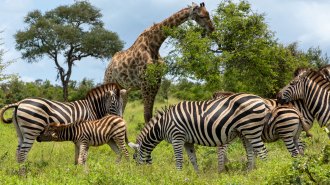 Animals
AnimalsIn a first, zebra cams reveal herds on the move with giraffes
Six zebras wore video cameras attached to collars, capturing the equines’ daily life. Sticking with giraffes may let the two species protect each other.
By Elie Dolgin -
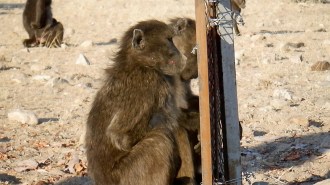 Animals
AnimalsWild baboons don’t recognize themselves in a mirror
In a lab test, chimps and orangutans can recognize their own reflection. But in the wild, baboons seemingly can’t do the same.
-
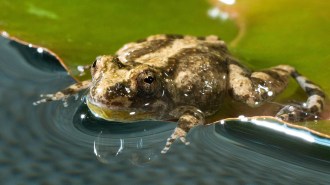 Animals
AnimalsCricket frogs belly flop their way across water
Cricket frogs were once thought to hop on the water’s surface. They actually leap in and out of the water in a form of locomotion called porpoising.
-
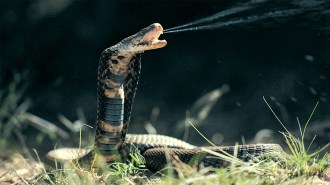 Health & Medicine
Health & MedicineLethal snake venom may be countered by new AI-designed proteins
The current way to produce antivenoms is antiquated. Experiments in mice suggest that an artificial intelligence approach could save time and money.
By Meghan Rosen -
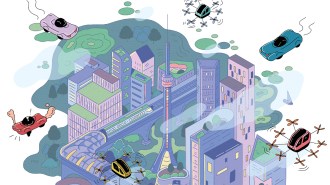 Tech
TechFlying cars could soon become a reality
Engineers have all the technology they need to make flying cars, but there are still some barriers to getting these sci-fi mainstays off the ground.
-
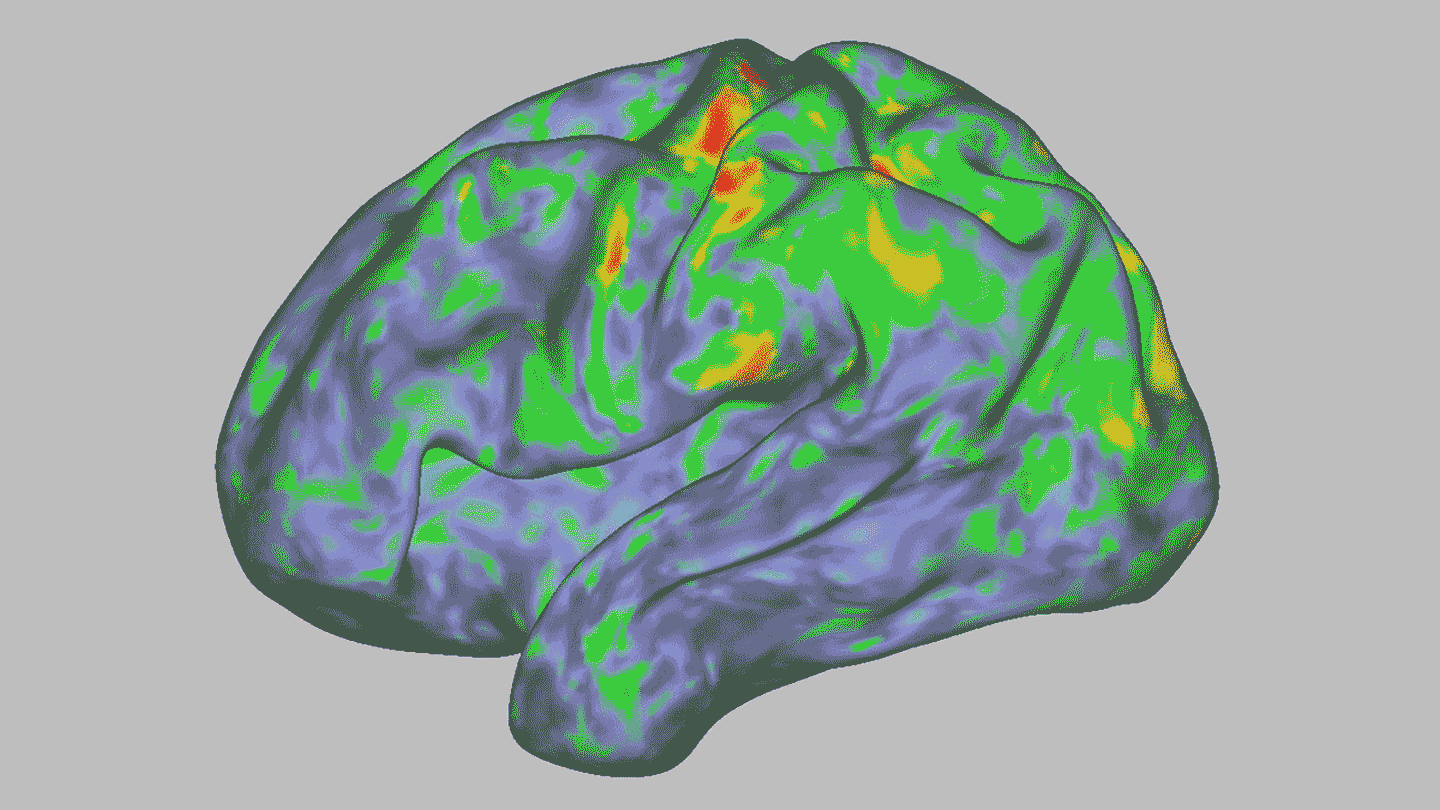 Science & Society
Science & SocietyThese are the 5 most popular Science News stories of 2024
Science News drew millions of visitors to our website this year. Here’s a recap of the most-read and most-watched news stories of 2024.
-
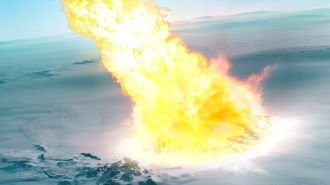 Life
LifeThese scientific feats set new records in 2024
Noteworthy findings include jumbo black hole jets, an ultrapetite frog, ancient asteroid remnants and more.
-
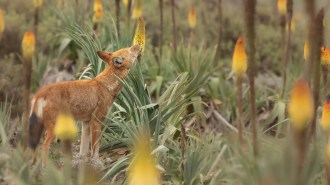 Animals
AnimalsEthiopian wolves are the first large carnivores found to slurp nectar
Wolves from three different packs were seen licking red hot poker flowers. That sweet tooth could make them the first known large predator pollinators.
-
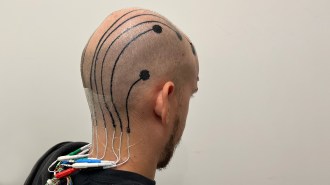 Neuroscience
NeuroscienceElectronic ‘tattoos’ offer an alternative to electrodes for brain monitoring
A standard EEG test requires electrodes that come with pitfalls. A spray-on ink, capable of carrying electrical signals, avoids some of those.
-
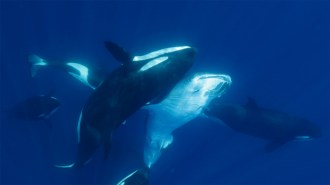 Animals
AnimalsVideos capture orcas’ tricks for taking down the largest fish on Earth
Citizen science videos document for the first time how orcas coordinate an attack against whale sharks.
By Susan Milius -
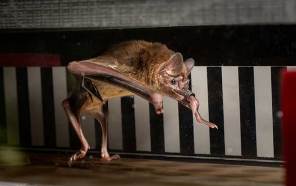 Animals
AnimalsPutting vampire bats on treadmills reveals an unusual metabolism
A bat gym shows that vampires are more like some insects, burning amino acids from blood proteins rather than the carbs or fats other mammals rely on.
By Susan Milius